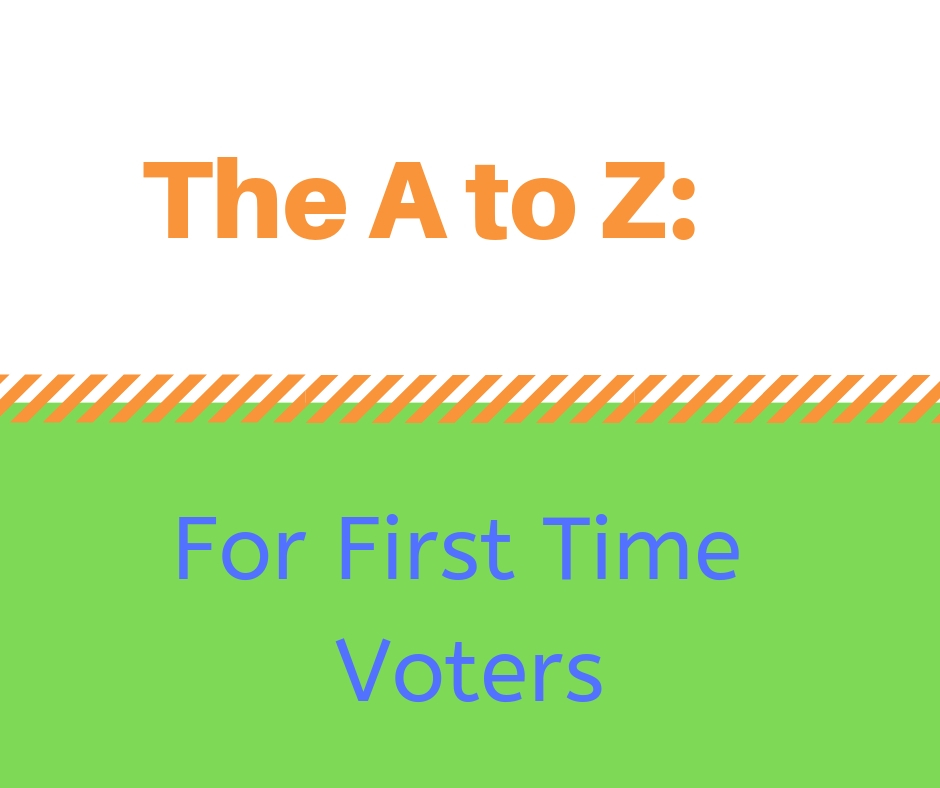
Earlier this week, the Election Commission (EC) of India had declared that polling for the 17th Lok Sabha assembly, the world’s largest democratic exercise, would begin in less than a month from now. The EC had stated that polling would take place in seven stages between the 7th of April and the 19th of May, and more than ten lakh polling booths would be set up to help the citizens of the world’s largest democracy exercise their franchise.
The recent state elections have indicated a definite shift in the nature of national politics, with the Congress winning the state elections of Rajasthan, Madhya Pradesh, and Chhattisgarh – all large sectors of the Hindi Belt. People are focused on perpetual issues such as farmer distress, unemployment, economic instability, and corruption while choosing their respective governments.
A more substantial fraction of the population responsible for this change is considered to be the youth of our country. The United Nations has identified ‘15-24 years’ as the age group for youth all over the world. In his Independence Day speech in 2017, the Prime Minister addressed this century’s first lot of voters, saying – “January 1, 2018, will not be an ordinary day – those born in this century will start turning 18. For these people, this is a decisive year of their lives. They are going to be the creator of the destiny (Bhagya Vidhata) of our nation in the 21st century. I heartily welcome all these youth, honour them and offer my respects to them. You have an opportunity to shape the destiny of our country. A proud nation invites you to become a part of its developmental journey.”
The power that we, as the youth of the nation, have in bringing about significant change is immense. The number of first-time voters is expected to reach 133 million by the time the 2019 general elections take place, a figure greater than the population of countries such as France and Japan.
Although there is a clear strength in numbers, do we really consider our voice important enough to be heard?
While the answer should be a yes, the enthusiasm shown by the same youth speaks otherwise. In a 2017 survey conducted by the Centre for the Study of Developing Societies, nearly half of the youth sampled had no interest in politics. Six out of ten even supported the ban of movies which hurt religious sentiments, along with the ban on beef. In another set of household surveys conducted by the Centre for the Monitoring of the Indian Economy, it was seen that the younger people were only slightly more disapproving of dynastic politicians and slightly less disapproving of criminal politicians than their elders. They are just as likely to vote for a candidate from their caste as an older person.
This lack of difference between the mindset of a younger person and an older person is most definitely detrimental and shocking. Perhaps the only sector in which the youth have a stronger desire for change is the rampant unemployment seen throughout the country.
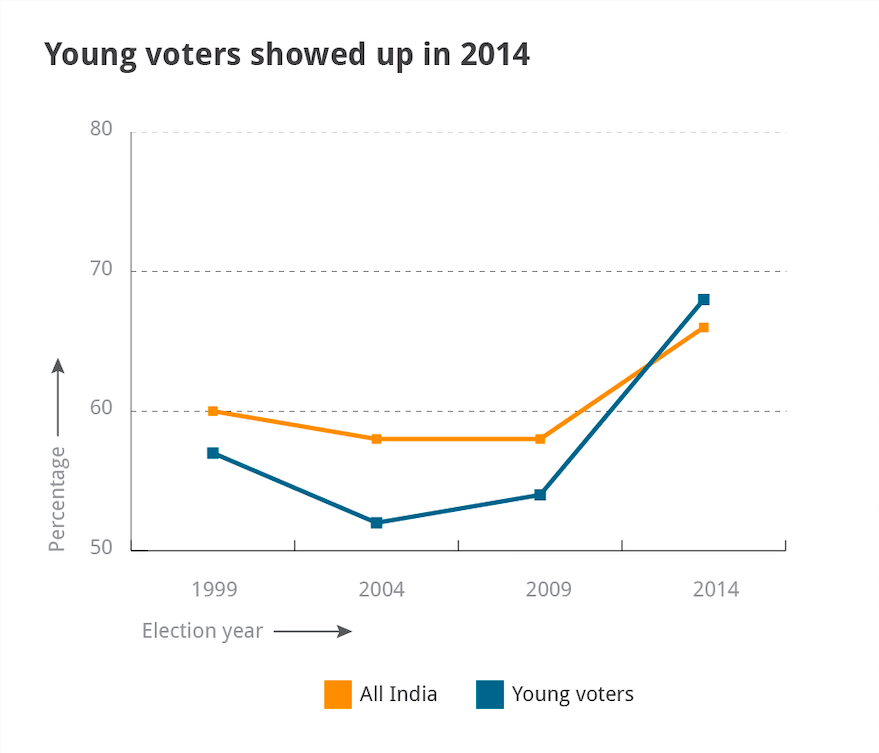
Once we realize the advantage of the powerful position we are in, issues such as the disinterest seen in politics and misinformation regarding the electoral process will automatically improve. What we can do as responsible citizens is take the initiative and learn about what is going on in our own country. We should not compromise our right to vote, say, simply because we could not fill in a form or give precedence to something else over current affairs.
Our actions today will only benefit or detriment our tomorrow.
Only when we unite and create a platform from which we can be heard will there be a discussion for a change. Not doing our duty disqualifies us from complaining and criticizing those who do. Where were we when we could have had a say and helped fix an issue bothering us? As Mahatma Gandhi preached, “Be the change you wish to see in the world.”
Every single vote matters.
Keeping this in mind, much has been done to combat the ignorance people claim to have towards the system. While the process to vote has never been simpler, it is also important for us to choose the right candidate to cast our vote for.
How do you decide who deserves your vote?
In the summer of 2019, the Lok Sabha elections will take place, whose result will determine the 15th Prime Minister of India.
In the past, it has been the norm that votes be cast based on political parties and not the individual candidate. A lot of times, it’s a question of ‘BJP or Congress?’ and not a question of whether either party has fielded worthy candidates.
So, as young citizens in a digital India, it is essential that we treat this election objectively and not through the goggles of past generations.
Make a responsible choice.
India has always been a vibrant land of uncountably different ideologies and cultures. At times, these have all gone hand in hand with each other. Historically, during these periods of cultural harmony, India flourished.
However, there have also been a lot of times when politics have brought out the cracks in these ideologies and used them to divide us based on the grounds of caste and religion. A house divided against itself cannot stand.
These elections aren’t a matter of caste or religion; they concern so much more. The wellbeing of generations of future citizens will be based on the choices you make on election day.
The power is all yours.
Who are the candidates standing for MP elections in your constituency?
To know who the candidates from your constituency are, you must first find out which constituency your area is under. A simple Google search saying ‘<pin code> constituency’ should solve that problem.
Next, you need to look up which candidates are standing for MP elections in your area. NETA—a simple platform where citizens can vote on the performance of their representatives during their term of office is very useful here (Link: https://neta.co.in/).
Not only does the app tell you who these candidates are, but it also tells you which party they belong to, their net assets and liabilities, family income and if they have any outstanding criminal cases against their names. What makes it even more useful is that you can see in which sectors this minister has performed well and in which sectors they haven’t, for example, water supply, sanitation, roads, and healthcare.
Each MP gets a lump-sum of money from the Members of Parliament Local Area Development Fund Scheme (MPLADS). By referring to https://www.mplads.gov.in/mplads/Default.aspx, you can see if your current representative has used these funds appropriately.
When you cast your vote, make sure you do it because your candidate has addressed ground-level issues. Do not get swayed by the notion of party politics. Most times, politicians get re-elected because they campaign amongst their vote bank. This tactic defeats the purpose of democracy because the candidate is undeserving of the post, but due to ill-advised he or she remains in office. May the force be with you.
How to register to vote
Registering to vote is extremely simplified in this day and age. The internet has helped us modernize voting applications too. To register as a new voter, one has to visit the National Voters’ Service Portal (http://nvsp.in).
The website has a range of forms available. A new voter would ideally have to fill Form 6 (https://www.nvsp.in/Forms/Forms/form6).
Filling the form takes barely ten minutes, and all that you require are JPEG files of a photograph, age proof, and address proof.
Here’s the list of documents that can be used as age proof:
1) Birth Certificate
2) Marksheet of Grade 10/8/5.
3) Indian Passport
4) PAN Card
5) Driver’s License
6) Aadhar Letter issued by UIDAI
Some documents you can use as address proof are:
1) Indian Passport
2) Driver’s License
3) Bank/Post Office Passbook
4) Ration Card
5) Post/Letter/Mail delivered through the Indian Postal Department.
Make sure to find out which constituency you belong to beforehand.
After successfully filling the form, you will receive a reference ID. This ID allows you to check the progress of your application’s processing.
You can track the status by visiting the application status page (https://www.nvsp.in/Forms/Forms/trackstatus ).
– Aarohi Sarma, Rahul Alvares and Salekha Reddy for MTTN
–Graphics: Yashovardhan Parekh
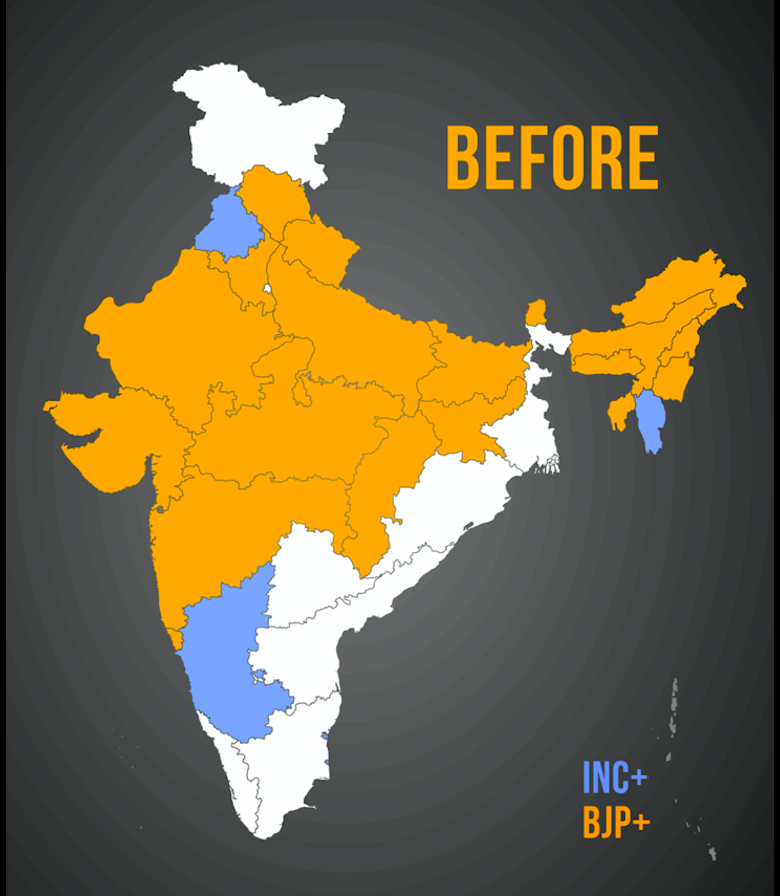

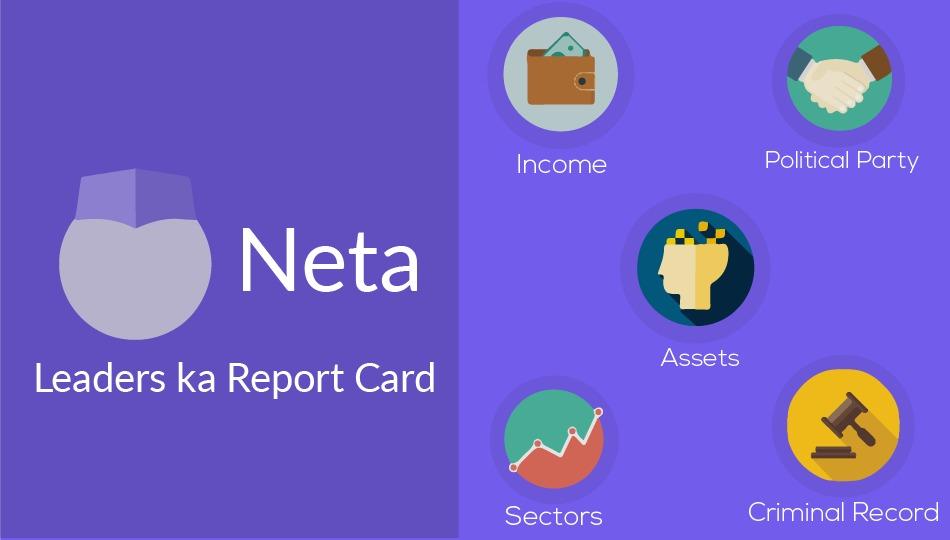
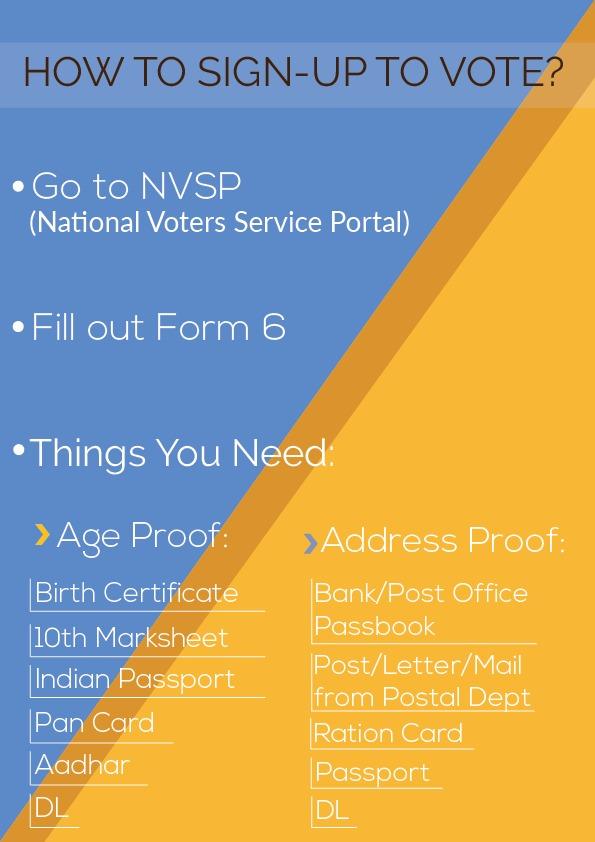
Leave a Reply
You must be logged in to post a comment.